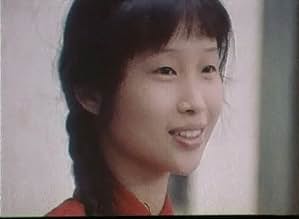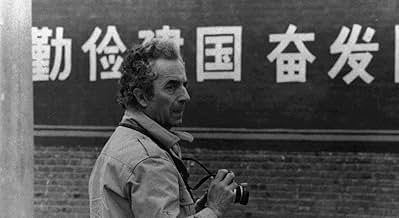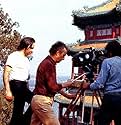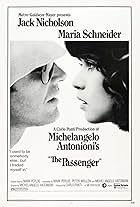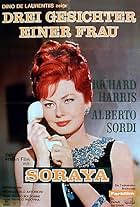In 1972, when the People's Republic of China's 'Cultural Revolution' was in full swing, chairman Mao Zedong invited director Michelangelo Antonioni to the country to make a documentary on New China. Eager to document what was then very much a closed country, Antonioni accepted an eight week visit in which he would tour through Beijing, Nanjing and Shanghai. With his small crew being led around by a 'tour guide', the footage they were being allowed to film was becoming increasingly limited, and often Antonioni would find himself resorting to semi- guerilla tactics in order to get a more honest depiction of the country. The resulting three-and-a-half hour documentary, split into three dividing sections, was detested by Mao and his wife Jiang Qing, and the film that is Chung Kuo China was banned in China, and Antonioni was accused of being anti-Chinese and a 'counter-revolutionary'.
The narrator Giuseppe Rinaldi tells us at the start of the film that they wanted "to show a picture of China, we can't offer more,". So Antonioni and his crew spend their time filming faces and the everyday activities of the people of China, in order to get a feel of a country living under communism. The footage is equally as fascinating as it is strangely eerie. The first section, which takes us around the city of Beijing, shows the famous city as a indistinguishable sea of expressionless faces, dressed in similar colours of blues, browns and greys, with nothing apparent to separate them by social class or even occupation. This is of course one of the defining ideals of socialism - true equality - but this doesn't look like a liberated nation, and actually paints a picture of misery and quiet suppression.
The film does capture some wonderful activities, however, namely the squirm-inducing Caesarian performed with nothing to numb the pain but acupuncture, and the footage of workers performing Qigong in the streets (and one gentleman whilst riding a bike). But Antonioni wasn't interested in just filming social habits, and his determination to get a real grasp of the country comes from the moment when he escapes from his tour guide (he refused to stop the car) to film a small factory-based community, where the inhabitants stare at the camera with nervous curiosity, possibly at the first Westerner they've ever come across. It's a very patient approach, a trademark of the great auteur, but often the camera lingers for too long, capturing very little, and the wonderful acrobat show at the climax proves a welcome piece of entertainment. Yet this is no doubt the definitive documentation of a period of Chinese history now looked back on in disdain and embarrassment.
www.the-wrath-of-blog.blogspot.com



